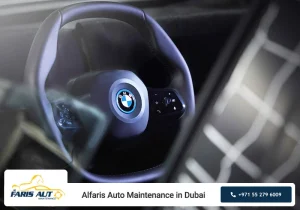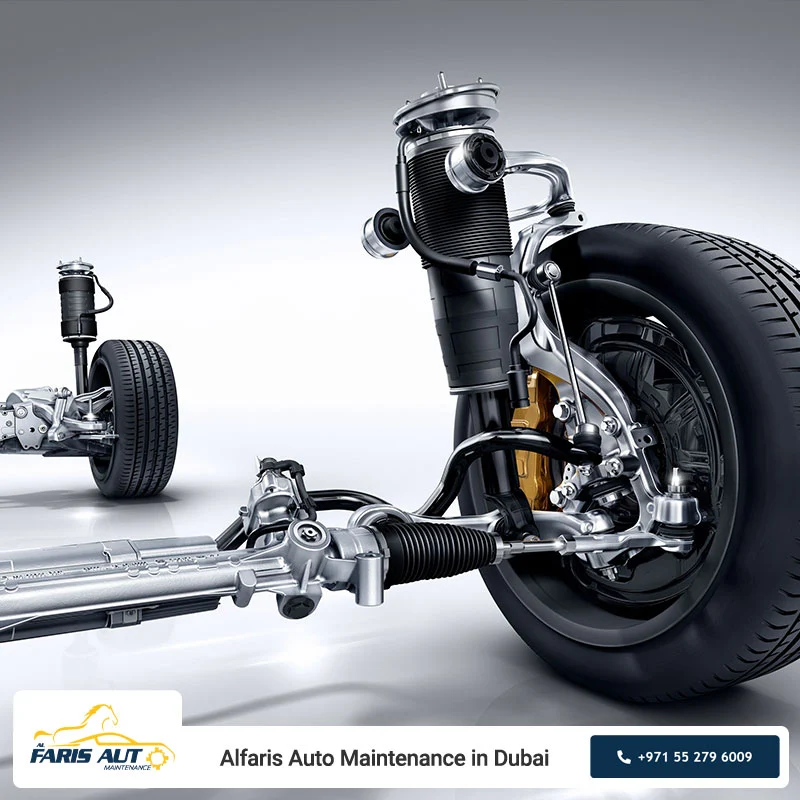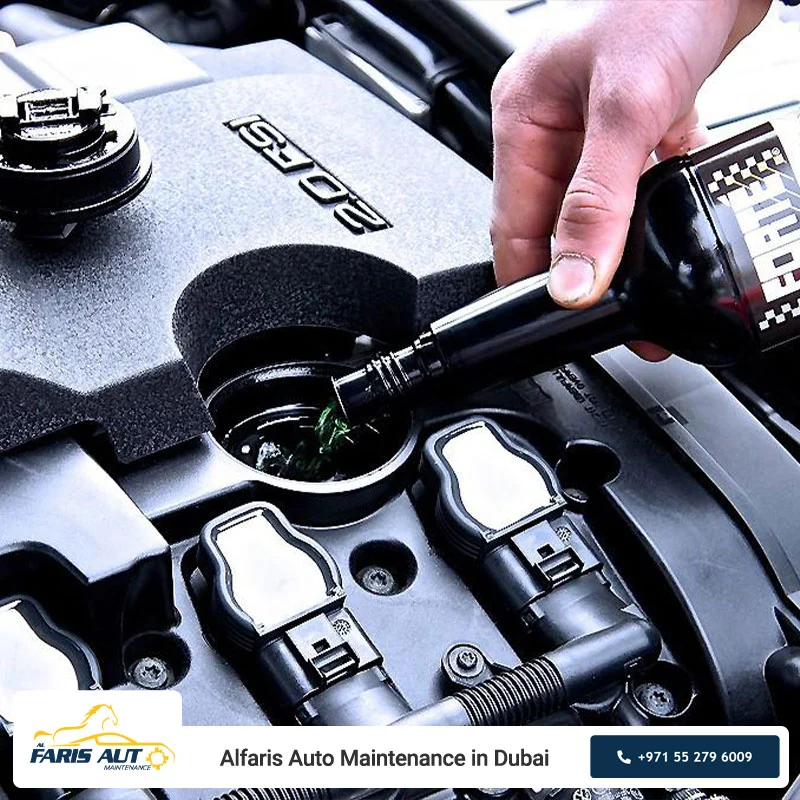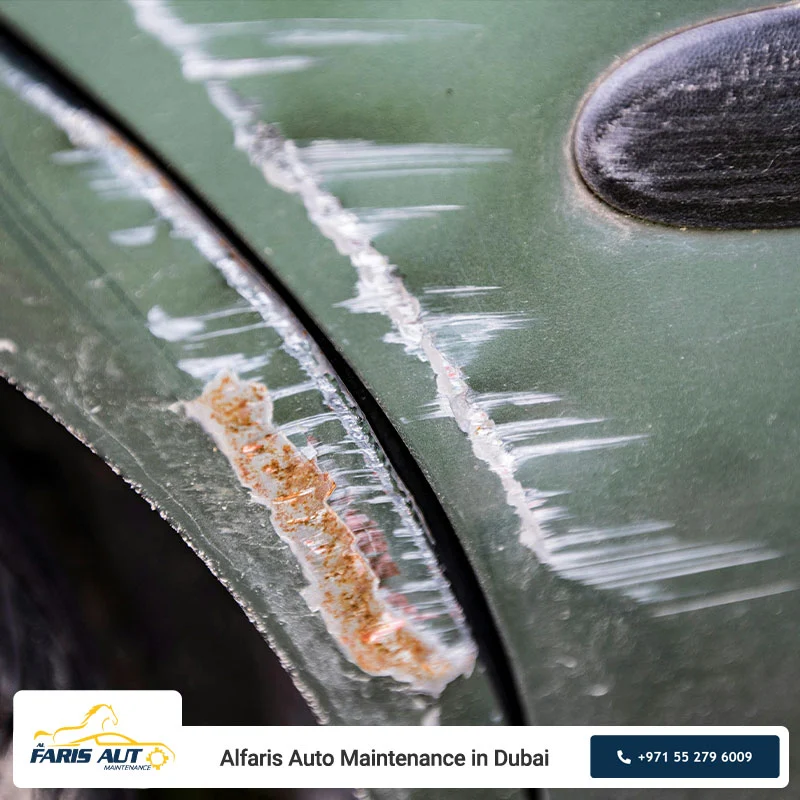The difference between electric and hydraulic steering is one of the important and key topics in the automotive world that every driver or car enthusiast should be familiar with. The car’s steering system plays a vital role in safety, control, and driving comfort, and choosing the type of steering system can have a direct impact on driving experience and maintenance costs. In this article, Alfaris Auto thoroughly and precisely examines the differences between hydraulic power steering and electric power steering so that you can make the best decision for purchasing or repairing your car with sufficient knowledge.
The importance of the proper functioning of the steering system and its impact on safety and fuel consumption will first be addressed by Alfaris Auto repair shop. Then, the hydraulic steering system will be introduced in detail, including its components, operation, advantages, and disadvantages. After that, electric steering as a more modern technology will be reviewed, highlighting its features and weaknesses. Finally, a comprehensive and practical comparison between electric steering and hydraulic steering will be presented, along with selection criteria for buyers and car owners. This article is designed to provide practical, accurate, and up-to-date information so that even non-specialists can easily understand the difference between electric power steering and hydraulic power steering and make an appropriate choice.
In the article “What Is the Difference Between Electric and Hydraulic Steering?” we will cover:
- The importance of proper steering system performance
- What is hydraulic Power steering in cars?
- What Is Electric Power Steering?
- Electric Power Steering VS hydraulic Power steering
- Criteria for Choosing Steering for Car Purchase
The Importance of Proper Steering System Performance

The steering system is one of the most critical components of a car’s control system, playing a direct role in the safety of the driver, passengers, and other road users. The difference between electric and hydraulic steering in their operation and efficiency greatly affects driving safety and comfort. The steering allows the driver to control the car’s direction easily and accurately. If the steering system does not function correctly, the risk of losing control of the car and serious accidents increases.
The quality of the steering system also influences driving comfort. A well-functioning steering system reduces driver fatigue on long trips and in various road conditions. For example, when parking or navigating through complex routes, a smooth and precise steering provides better control, giving the driver a greater sense of confidence and calmness.
On the other hand, the power steering system’s operation can also affect the car’s fuel consumption. Inefficient systems may draw more energy from the engine, increasing fuel consumption. Additionally, maintenance and repair costs related to the steering system can constitute a significant part of car ownership expenses. Therefore, proper selection and maintenance of the steering system not only enhance safety but also save costs and improve the driving experience.
What Is Hydraulic Power Steering?
Hydraulic Power Steering (HPS) is one of the oldest and most common power steering systems in cars. This system uses hydraulic oil pressure to amplify the force applied by the driver to turn the steering wheel, making driving easier and smoother. Understanding the main components and operation of hydraulic steering helps better grasp the differences between electric and hydraulic steering. These components include:
- Hydraulic pump
- Oil reservoir
- Oil lines
- Control valve
- Steering gear

Contact with AlFaris
You can contact our experts for free consultation, discuss the type of problem or service you are requesting, and arrange for your presence.
The hydraulic pump, usually connected to the engine by a belt, pressurizes the oil, which is then transferred through hoses to the hydraulic cylinder. The oil pressure reduces the force needed to turn the wheels, resulting in smoother and more precise steering.
Advantages of hydraulic steering include reducing the effort required to turn the steering wheel, especially at low speeds and during parking. This system offers better car control, enhancing stability and maneuverability. It also reduces driver fatigue on long drives and provides better road feel, which is highly valued by drivers who prioritize road feedback.
However, this system also has notable disadvantages. Hydraulic steering consumes more fuel due to the continuous operation of the hydraulic pump and adds weight to the car. The system’s complexity and higher likelihood of component failure increase maintenance and repair costs. There is also a risk of hydraulic fluid leaks, which can cause environmental pollution and fire hazards. Its performance may decline in extremely low or high temperatures. For more information about periodic car maintenance costs, you can refer to the relevant article. Hydraulic power steering is typically used in heavy cars, luxury cars, and some sports cars that require more precise control and greater assistance.
What Is Electric Power Steering?

Electric Power Steering (EPS) is a modern power steering system that uses an electric motor instead of hydraulic pressure to assist in turning the steering wheel. This system consists of:
- Electric motor
- Sensors
- Electronic Control Unit (ECU)
- Power transmission mechanism
The operation of electric steering involves sensors measuring the force applied by the driver on the steering wheel, and the ECU activates the electric motor based on this data to provide the necessary assistance. This electronic system is the fundamental difference between electric and hydraulic steering. As a result, the driver can turn the steering wheel with less effort. Contrary to some misconceptions, the mechanical connection between the steering wheel and the wheels remains intact, and the wheels’ direction changes through mechanical force, not electrical force.
Advantages of electric steering include reduced fuel consumption due to the elimination of the hydraulic pump and reduced engine load. This system provides greater smoothness and comfort at low speeds and during parking, and it improves car stability at high speeds. Additionally, removing the hydraulic pump lowers emissions and maintenance costs. Electric steering easily integrates with driver assistance systems such as automatic parking and stability control, which is a significant advantage in modern cars.
The manufacturing and repair costs are higher due to complex electronic components. The system’s complexity makes specialized repairs more challenging, and there is a risk of electronic component failure. Moreover, electric steering is generally unsuitable for heavy cars as it requires very powerful electric motors. For information about steering failure symptoms, you can read the introductory article on Introduction to the Signs of Electric Power Steering Failure. Alfaris Auto’s specialized center in Dubai, one of the reputable service providers for electric power steering repair and maintenance, is ready to offer electric steering repair services.
Electric Power Steering VS hydraulic Power steering
In this section, we will examine the differences between electric and hydraulic steering :
- Steering Energy Consumption: Electric steering consumes less energy by eliminating the hydraulic pump and using the electric motor only when needed. In contrast, hydraulic steering keeps the pump continuously active, increasing fuel consumption.
- Driving Feel Transmission: Hydraulic steering transmits a more natural and better road feel, with real road vibrations reaching the driver effectively. This feature is crucial for sporty and professional drivers. However, electric steering, due to vibration filtering and electronic systems, provides less steering feedback, which some drivers may find unpleasant.
- Maintenance and Repair Costs: Generally, electric power steering has lower maintenance costs but requires more specialized and complex repairs with special equipment. Conversely, hydraulic power steering, due to its simpler mechanical structure, is easier to repair in many workshops but has higher maintenance and hydraulic part replacement costs.
- System Complexity: The electric steering system is more complex and offers better adjustability and integration with car electronic systems, such as driver assistance and automatic parking. Hydraulic steering is more limited in this regard, with mechanical adjustments only.
- Initial Purchase Cost Impact: Cars with electric steering usually have a higher initial price but lower long-term electric power steering repair and fuel costs. Hydraulic steering cars have a lower initial cost but higher long-term maintenance and fuel expenses.
- Safety and Steering Performance During Failure: Electric steering may become stiff if electronic components fail and requires backup systems. Hydraulic steering becomes very stiff if there is an oil leak or pump failure, which is dangerous, but its mechanical system still maintains the connection between the steering wheel and wheels.
Criteria for Choosing Steering for Car Purchase

Choosing between electric steering and hydraulic steering depends on several important factors. First is the type of car use; if you mostly drive in the city and short distances with frequent parking, electric steering is a better option due to its smoothness and fuel efficiency. However, if you drive sportily, off-road, or on complex routes and value better steering feedback, hydraulic power steering might be more suitable. Budget also plays a key role. Cars with electric steering usually cost more initially but have lower maintenance and fuel costs. Hydraulic steering cars have a lower initial cost but higher long-term repair and maintenance expenses.
Access to repair and service facilities should also be considered. Hydraulic steering is easier to repair in most workshops due to its simpler mechanical design. However, electric power steering requires specialized equipment and higher technical knowledge, which may increase repair costs and time. Ultimately, consulting experienced experts like the Alfaris Auto team can help you make the best choice based on your needs, budget, and conditions.




